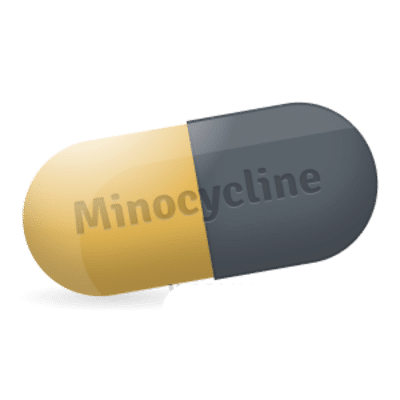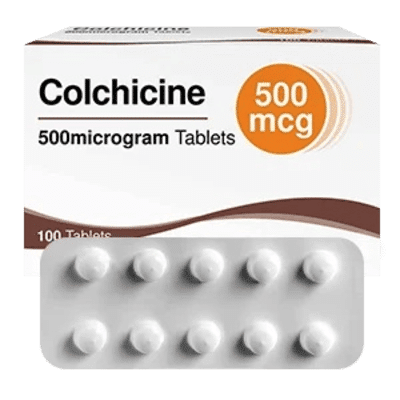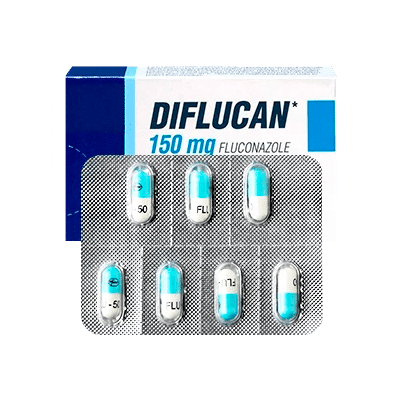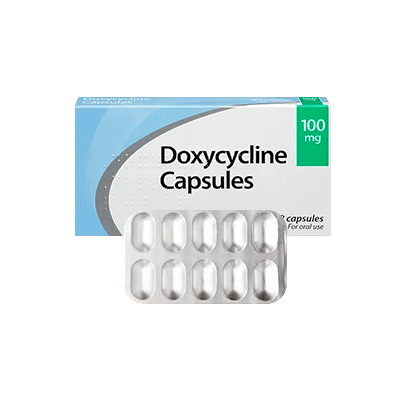I took Minocycline to treat chronic acne, and the results were immediate. Within a week, I noticed a significant reduction in inflammation. The only inconvenience was following the regimen, but the results were worth it.

Minocycline
- Quality products
- Support 24/7
- Fast delivery
About this medicine
Minocycline is an antibacterial drug belonging to the tetracycline group. It is widely used in medicine to treat various infectious diseases. Minocycline is often used to combat serious infections caused by microorganisms sensitive to tetracyclines, as well as to treat severe forms of acne in combination with other medications. The drug is available in convenient tablet form, making it easy to follow the dosing regimen.
Composition of the medicine
Minocycline is highly effective due to its active ingredient, which provides the necessary pharmacological action. The main active ingredient is Minocycline, which is contained in each tablet at a precise dosage. This component has the ability to penetrate bacterial cells, disrupting their protein synthesis and inhibiting growth.
- Minoclin in an amount of 50 mg.
- Excipients that ensure the stability and absorption of the drug.
- Tablet coating components that improve ease of administration.
The combination of these substances makes Minocycline an effective treatment against a number of infectious diseases, achieving the desired therapeutic effect.
Usage and dosage
Minocycline requires strict adherence to your doctors recommendations and the instructions for use to achieve maximum treatment effectiveness. Proper use of this medication is essential to avoid side effects and achieve the desired results.
- Take your tablets as directed by your doctor, at the prescribed time, trying to maintain consistent intervals to maintain stable medication levels in your body.
- Some forms of Minocycline should be taken with food, while others should be taken on an empty stomach. Be sure to check with your healthcare provider about how to take your medication.
- Minocycline should be taken with a full glass of water, and you should avoid lying down for half an hour after taking it to reduce the risk of esophageal irritation.
- If you take minerals or supplements (e.g., calcium, magnesium), try not to take them 2-3 hours before or after taking Minocycline.
- Remember to complete the full course of treatment, even if you feel better sooner than expected.
Correctly following these recommendations will help ensure the effective and safe use of the medication.
How does this medicine work?
Minocyclines pharmacological action is due to its ability to inhibit bacterial growth and reproduction. Minocycline acts as an inhibitor of protein synthesis in bacterial cells, leading to their suppression and, ultimately, death. The drug slows the growth and reproduction of pathogenic microorganisms, weakening them and allowing the bodys immune system to effectively destroy them. This is especially valuable in cases of chronic and severe bacterial infections, where other drugs may be less effective.
Furthermore, Minocycline exhibits high activity against some bacteria resistant to other antibiotics, making it a valuable tool in the treatment of complex infections. Its ability to penetrate tissue allows it to effectively combat infections in various parts of the body, including the skin, respiratory tract, and genitourinary tract. Minocyclines effectiveness has also been confirmed in the treatment of various dermatological conditions, such as acne, further expanding its range of medical uses.
Indications for use
Minocyclines indications cover a wide range of infectious diseases, making it a versatile therapeutic tool. It is used in a variety of clinical settings where it is necessary to target bacteria sensitive to tetracyclines.
- Respiratory tract infections, such as bronchitis and pneumonia, caused by bacteria sensitive to Minocycline.
- Skin conditions, including acne, requiring long-term antibacterial treatment.
- Urinary tract infections requiring systemic antibacterial intervention.
- Chronic and acute inflammatory processes caused by bacterial agents.
These indications are an indicative list and may vary depending on the recommendations of the treating physician and the individual patients needs.
Contraindications for use
Contraindications to the use of Minocycline must be considered to ensure patient safety. These factors can significantly influence therapy selection and require consideration of all individual patient health factors.
- An allergic reaction to Minocycline or other tetracycline antibiotics, which makes the use of this drug dangerous.
- Concomitant use of certain medications, such as isotretinoin or methoxyflurane, which may negatively interact with Minocycline.
- Pregnancy or breastfeeding, when use of the drug may affect the development of the fetus or infant.
- Age under 8 years, when use of Minocycline may cause undesirable changes in the development of teeth and bones.
Contraindications should be considered when planning therapy, and a doctor should be consulted to determine the most appropriate treatment.
Side effects
Like any effective antibiotic, Minocycline can cause side effects, although they are less common. It is important to be aware of possible reactions so that you can seek prompt medical attention.
- Gastrointestinal disorders such as nausea, vomiting, or diarrhea may occur while taking the drug.
- Headaches and dizziness are also common reactions that require close monitoring.
- Allergic reactions, such as rash, itching, or angioedema, are less common but require immediate discontinuation.
- Tooth discoloration and effects on bone development in young children limit the drugs use in pediatrics.
These side effects should be discussed with a doctor to allow for timely treatment adjustments.
Frequently asked questions
Minocycline Reviews and Experiences
I tried Minocycline to treat a respiratory infection. It really helped me recover quickly. I experienced no side effects, which was a pleasant surprise, as I usually get stomach issues when taking antibiotics.
I had an allergic reaction to Minocycline and had to stop taking it. However, the drug had proven highly effective before that; I felt better within just five days. Now Im looking for an alternative that would suit me personally.








